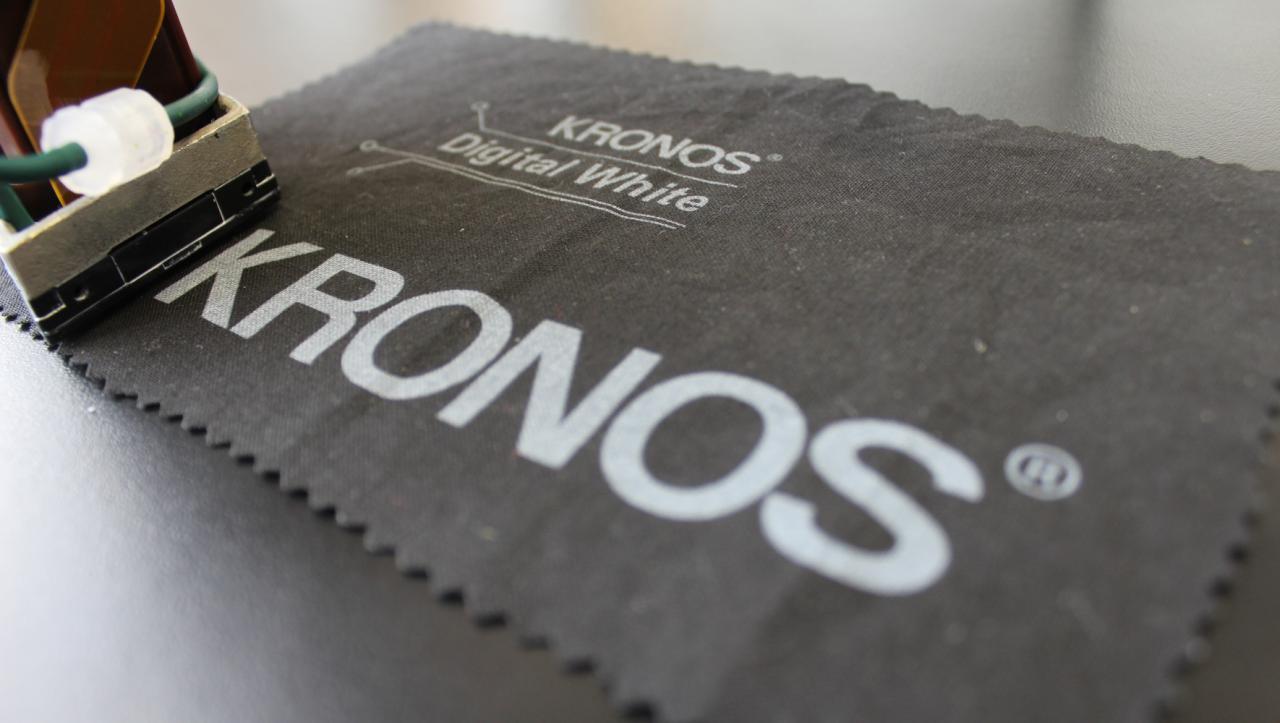TheTextile industry aims to reduce its impact on the environment. Switching from traditional analog printing to digital printing using pigmented inks can reduce waste by 85%, reduce energy consumption by 55%, reduce water consumption by 60% and reduce CO2 emissions by 95%, and provides an opportunity to make textiles more sustainable Persistent. Digital textile printing also offers efficiency benefits, such as shorter time to market and single-digit batch production close to the end consumer. These advantages mean that the adoption of inkjet printing is growing, but the technology can only reach its potential if supported by advanced formulations and carefully selected raw materials designed specifically for digital textile printing. Not all polyurethane adhesives are suitable.

KRONOS, a leading supplier of titanium dioxide pigments, and Covestro, a leading global manufacturer of high-performance polymers, are collaborating to demonstrate how innovative new material solutions can support the use of digital inkjet printing on fabrics and drive the sustainable transformation of the textile industry. After testing by both raw material suppliers and validation by industry partners, the collaboration successfully demonstrates Covestro’s waterborne INSQIN® product portfolio of Impranil® polyurethane adhesives and Imprafix® crosslinkers with the white pigment dispersion KRONOS
9900 Digital white compatible. No significant precipitation was observed and all formulations showed good stability even after four weeks of testing at 50°C.
Therefore, the four Covestro adhesives Impranil®DL 1602, Impranil™DL 1618, Impraniel®DL 1620 and Impranel®DL
1623 with KRONOS 9900 Digital
White’s compatibility has been confirmed, an exciting development that opens the door to increasing the popularity of inkjet printing on fabrics. Together, these ingredients create a formula suitable for reliable printing processes.
A new adhesive could solve the sagging problem
Covestro also develops Impranil® DL, a new polyurethane dispersion
1606, specifically designed to address the specific issue of sagging, a well-known quality issue caused by the relatively high ink loads required by the DTF printing process. This advanced binder offers excellent sag resistance and enables high white ink loading, making it an excellent choice for white pigment inks used in inkjet printing. Its performance in terms of compatibility, stability, printability and image quality has been verified by Covestro’s innovation partners, which means textile manufacturers can be confident in achieving high-quality results for digital printing environments and Efficiency advantage.
Torsten, Global Head of Textile Coatings, Covestro
Dr. Pohl: “By partnering with another raw material supplier, we can solve two key pigment ink challenges facing the growing digital inkjet printing market: formulation and sag. Partnering with KRONOS brings us closer to more sustainable textiles The industry is one step closer!”
Jürgen Bender, Global Market Development Manager at KRONOS, said: “With this partnership, we have secured the innovative KRONOS 9900 Digital
White water-based pigment concentrates are compatible with Covestro’s INSQIN® polyurethane adhesives and are ideally suited for DTF textile printing processes. ”

 微信扫一扫打赏
微信扫一扫打赏

